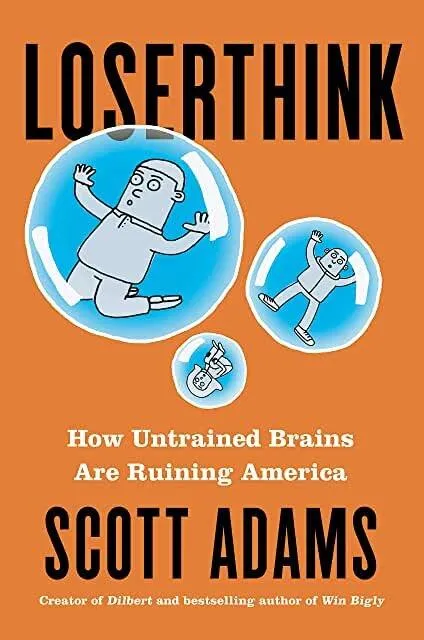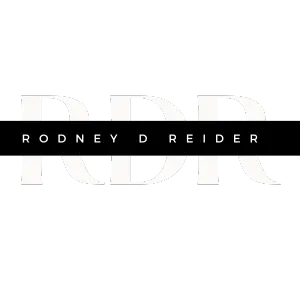
LOSERTHINK BY SCOTT ADAMS
A book about improvement. Another self-help book? One by Scott Adams? Isn’t he the Dilbert guy? It is a good read. I have consumed many self-help books over the years. In fact, I have found many things worth incorporating to improve efficiency, assist in public speaking, or even enhance team-building with the result of positive outcomes through a different or even more purposeful approach. The books always added to my outlook or arsenal, but Mr. Adams discusses thinking itself. He believes and expounds upon a very enlightening and yet simplistic approach; our need for learning to think better and our internal unwarranted confidence in the outcomes of our own thought process and decision-making.
Self-improvement is a discipline that benefits when the learnings are applied. Mr. Adams is no different. His is not a formulaic approach. He offers a unique, thoughtful and very necessary perspective. It is all about thinking better. Thinking better by expanding the perspective through the expertise of others. Have you ever wondered how an artist makes decisions? We look at their paintings or other renditions and forms of art, but how does an artist decide what is important and take the action? Compare this to an economist. How does an economist decide priorities and determine next steps? Mr. Adams shares insights. His exploration of expertise ranging from entrepreneurs to engineers to leaders provides a juncture of context. It offers the fortuitous option for the reader to delve into an array of perspectives and gain additional insight from the knowledgeable process of these experts to expand and apply to our thinking and decision-making. Incorporating expertise and experience from others into our own way of life offers a much better view professionally and expands discussions with those in our outside world as well.
Mr. Adams talks a great deal about “loserthink.” Hence, the title of his book. Such a title, as foreign as it may seem, stems from the fact that many of us are not as good of thinkers and decision-makers as we perceive ourselves to be. He discusses our abundance of “confidence in our rightness’ which is not always translatable into success. Mr. Adams encourages us to document our decisions (delusions?) with the commitment to peer back on a later date to judge our wisdom or accuracy. Even without the recommended tracking, we can easily flinch at a few of the poor business or investment decisions and even an individual who proved to be a poor dating partner. In fact, as Mr. Adams so effectively brings to the reader’s attention, from “experiencing certainty in a complex situation” to the “persistent belief in your own rationality” are key indicators of our high likelihood of experiencing “loserthink.” Not an easy message to hear. You may not even wish to read further, but you should. You will be able to discover the self-awareness and type of thinking necessary to overcome such a deficit. You may even find yourself helping others to escape their own “mental-prison.”
As people who want to perform better in business and in life, we say the right things and may even watch the podcast or read the book, but we still may be a little complacent. Especially when we do not believe there are any gaps in our thinking or our approach. If you are serious about being a productive person in your industry, continual improvement should always be a must. You desire to make better decisions for your business and your life. You have the drive but if early on in your career, you may not have the necessary experience to move up. You have yet to see enough scenarios unfold with the prerequisite people involved to begin to be completely clear at the impact of certain decisions, but you do have the desire to continue to grow and learn. Or, you may be towards the end of your career. You have gained a great deal of experience yet if you are wise, you know you always need to improve. You want to continue to apply your experience and knowledge in the most ideal way possible and never show a decline due to age. You should want that highly-trained brain to make your most positive impact on the world. Mr. Adams helps us see our needs and lays-out the opportunity for us to explore options for improving our own thinking and perceptions. Mr. Adams assures us (and I believe him) we can be very smart in his very simple and easy to understand style.
Ultimately, if you are not aware or equipped with the most productive ways of thinking, you are not performing to the potential possible in your decision-making, and you, as well as many others, are suffering the consequences. Mr. Adams shares the obvious but often overlooked concept in which a good decision-maker “considers all the relevant costs and all the benefits, including moral and ethical considerations.”
Finally, I enjoy that Mr. Adams in his writing also reminds us to not always “trust the experts if you want to get something done.” We can be the thinker who decides. In fact, I recommend this as a witty and informative book worth reading.
Click here to purchase.
Note: I am not affiliated with the author in any way.
Tagged: Scott Adams
Mindset, Skillset, Peopleset Leadership

